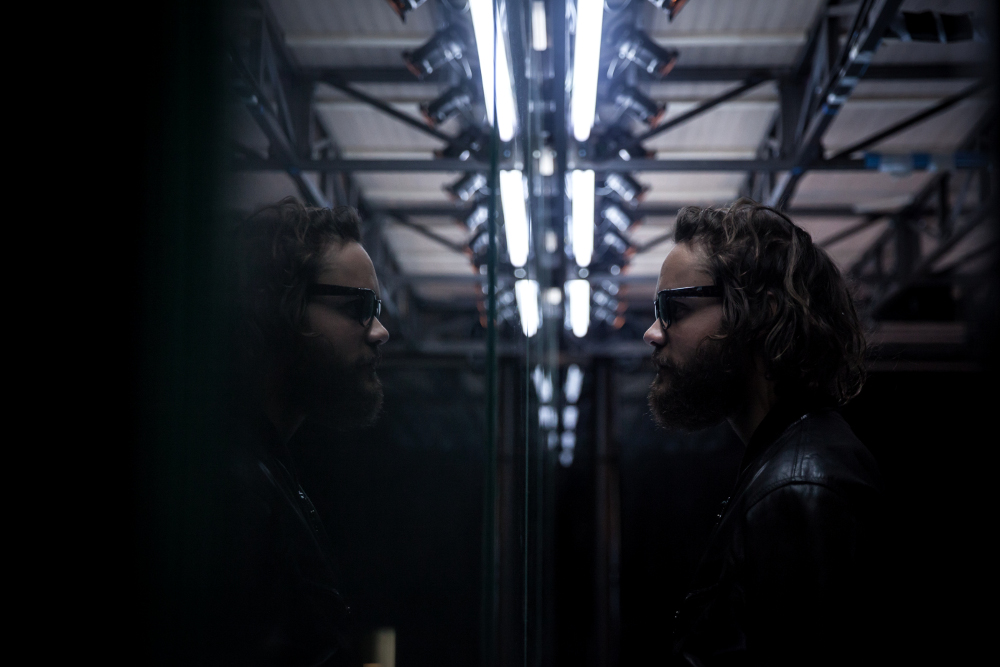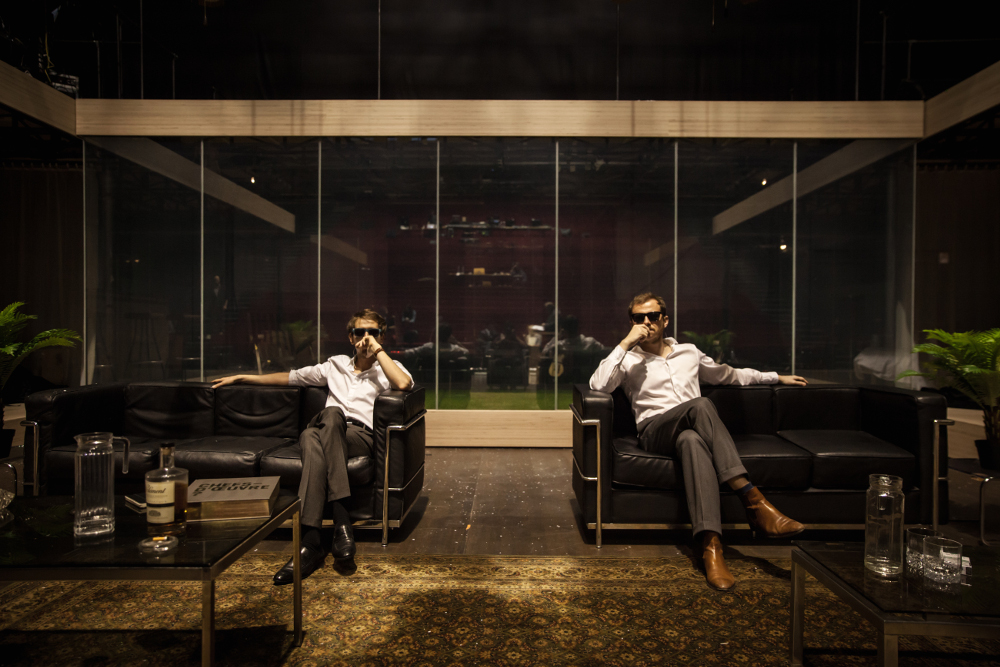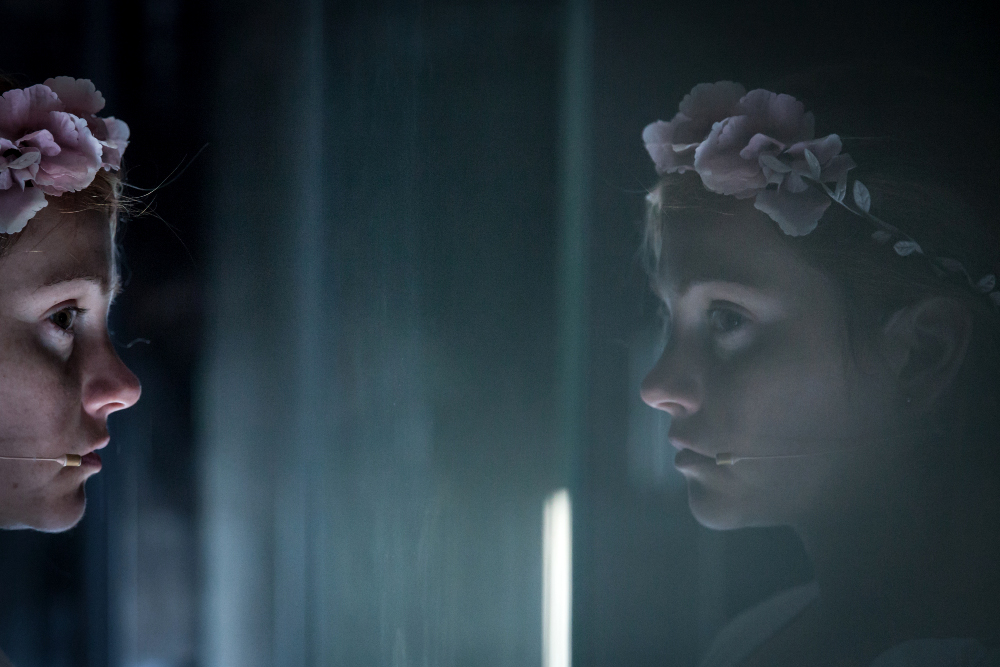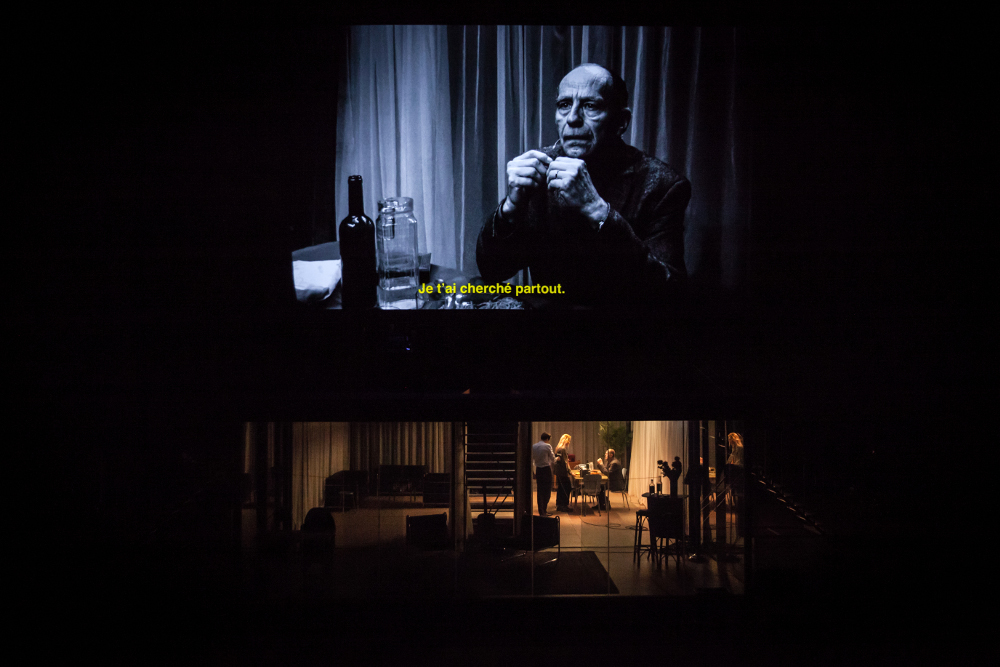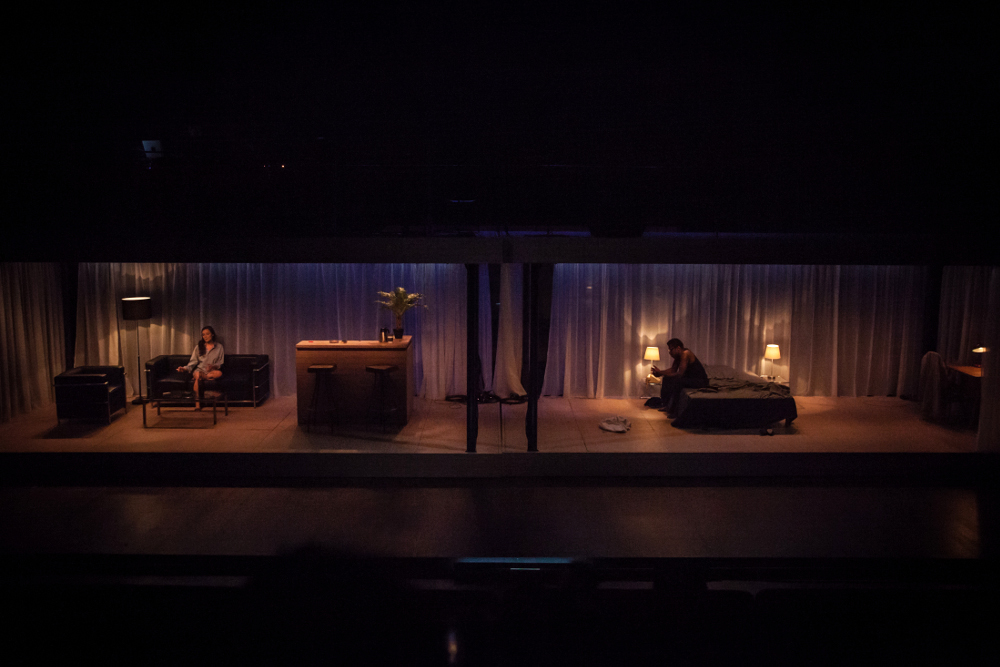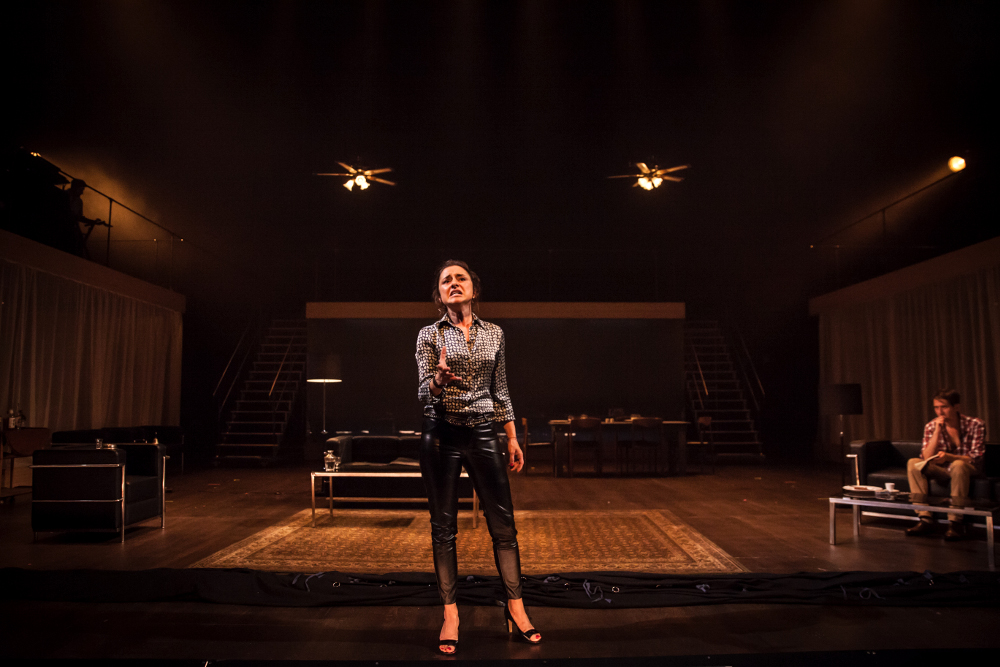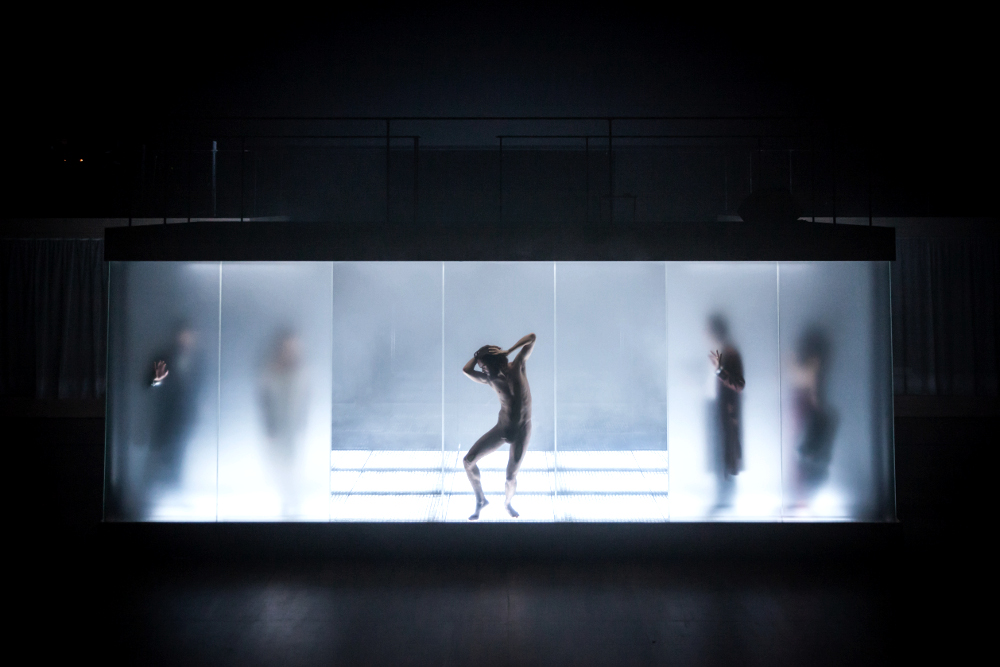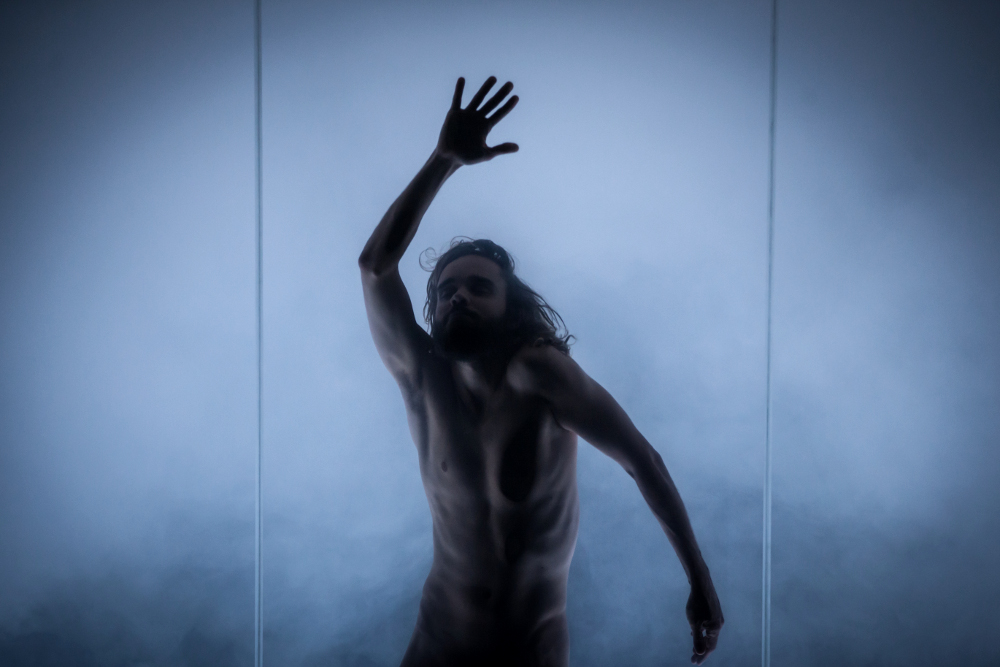After Les Particules élémentaires, by Michel Houellebecq, Julien Gosselin and his company’s latest undertaking is perhaps even more foolhardy than the previous one. 2666 is an adaptation of the masterpiece by the Chilean writer, Roberto Bolaño, and its breathtaking enquiry into writing and evil. Since its posthumous publication in 2004, 2666 has been heralded by critics world over as one of the major texts of the early 21st century. Bolaño, a writer of poetry up to this point, did not turn his hand to narrative fiction until the mid-1980’s, by which time he was in his forties. His unique tone quickly aroused interest - a combination of his own special brand of irony, melancholic strangeness, formal elegance and predilection for cryptic allusions that frequently lead readers up the garden path. And all this at the service of a sense of the real which seems to marry together, in an organic way, the intricacies of the so-called globalization of the imagination. With its vast size (the French translation is 1353 pages long), status, and content, Bolaño’s final cosmic novel is impossible to sum up. Its five parts can be read separately. They shift between the worlds of the Ancient and the New, spanning the period from the aftermath of the First World War up to the present day. The universe that Bolaño summons up, in contrast to that of Pascal, appears to have a centre that is nowhere to be seen, and its circumference everywhere. Or if it does have a centre, it is one that never ceases to slip through our fingers (in his notes, Bolaño himself speaks of a “secret centre”). The bulk of the characters seem to try to make headway, often unwittingly, towards a magnetic point of fascination where all the different lines of destiny would meet each other, and all questions would be answered - if only this point was reachable.
Though it does at least seem to have a sort of equivalent, with a name which can be found on a map: Santa Teresa, an imaginary town or city inspired by Ciudad Juaréz (whose sad reputation stems from the series of barbaric rapes and murders of hundreds of women since 1993). The five sections of 2666 converge there in an enigmatic way. The book swings into action with “The Part about the Critics”, in which four academics set off on a quest to find Benno von Archimboldi, the German writer that their research focuses on. Their search brings them to Santa Teresa. A multitude of journeys ensues, followed by seemingly unrelated wanderings and digressions of various sorts, but which all lead to Mexican soil. What is the relationship between the horrors of Santa Teresa and those of the Second World War, in which the young Archimboldi, in the guise of his Third Reich uniform, plays a part? Bolaño tells us no more about it than he does about the nature of the relationship which seems to establish itself between writing (critic-based, journalistic or artistic) and evil.
Julien Gosselin knows all too well that the book, just like the real life that it reflects, holds no easy answers for someone trying to find their way through it. He also knows that the stage can match the enormity of a novel, and the world it conjures up. In this his forthcoming new work at the 2016 Festival d’Avignon, his dream is to create a show which is rich and bursting to the seams with energy, and which will be “for the audience what 2666 is for the reader - colossal, unending, joyous, and difficult at times. Onstage there will be between fifteen and twenty actors, doubling up as musicians, performers, narrators and characters. I want to bring together all the necessary elements in this attempt at a sort of total theatre that we are working towards."
Cast
French translation Roberto Amutio
adaptation Julien Gosselin
scenography Hubert Colas
music Rémi Alexandre, Guillaume Bachelé
lights Nicolas Joubert
video Jérémie Bernaert, Pierre Martin
sound Julien Feryn
costumes Caroline Tavernier
production Si vous pouviez lécher mon cœur, Le Phénix – Scène Nationale de Valenciennes, Théâtre National de Strasbourg, Odéon-Théâtre de l’Europe, Festival d’Avignon, Théâtre national de Toulouse Midi-Pyrénées, MC2: Grenoble, Stadsschouwburg – Amsterdam, La Filature Scène nationale – Mulhouse, Le Quartz – Scène nationale de Brest
avec l’aide à la production du Dicréam et de la SACD Beaumarchais
avec le soutien exceptionnel du MCC (DGCA)
avec le Festival d’Automne à Paris
2666 © 2004, The Heirs of Roberto Bolaño. Tous droits réservés
Director
Julien Gosselin trained at the École supérieure d'art dramatique de Lille, directed by Stuart Seide. With six fellow students, he formed Si vous pouviez lécher mon cœur in 2009, and directed Gênes 01 by Fausto Paravidino (Théâtre du Nord, 2010), Tristesse animal noir by Anja Hilling (Théâtre de Vanves, 2010) then Les Particules élémentaires after Michel Houellebecq (Festival d'Avignon, 2013). Next came Je ne vous ai jamais aimés by Pascal Bouaziz (Théâtre national de Bruxelles, 2014), Le Père by Stéphanie Chaillou (Théâtre national de Toulouse, 2015) and 2666, adapted from Roberto Bolaño's whirlwind novel (Festival d'Avignon, 2016).
After 1993, by Aurélien Bellanger (Festival de Marseille, with class 43 of the Théâtre national de Strasbourg), he returned to Avignon for Joueurs, Mao II, Les Noms, after Don DeLillo, which also inspired Vallende Man (L'Homme qui tombe), first performed at the International Theater Amsterdam (Netherlands), then Le Marteau et la Faucille (Printemps des Comédiens - Montpellier). In 2018, he won the XV Europe Prize for Theater in St. Petersburg. In 2021, Julien Gosselin will work with the Théâtre national de Strasbourg's Groupe 45 on an adaptation of Krzysztof Kieslowski's Dékalog, and will direct Le Passé, based on texts by Russian author Léonid Andréïev. In 2023, he created Extinction, based on Thomas Bernhard and Arthur Schnitzler, which brought together actors from Si vous pouviez lécher mon cœur and the Volksbuehne, and premiered at the Printemps des Comédiens in Montpellier, before going on to the Avignon Festival, Berlin, Antwerp and Paris (Théâtre de la Ville). He created Musée Duras with students from the CNSAD Class of 2025.
At the Odéon, Julien Gosselin and Si vous pouviez lécher mon cœur presented:
- Les Particules élémentaires, by Michel Houellebecq, at Les Ateliers Berthier (2014), reprised at Théâtre de l'Odéon 6e (2017);
- 2666, by Roberto Bolaño, at Les Ateliers Berthier (2016);
- Joueurs, Mao II, Les Noms, after Don DeLillo, at Les Ateliers Berthier (2018);
- Le Passé, after Leonid Andréïev, at Odéon 6e (2021).
He has been the director of the Odéon Théâtre de l'Europe since July 15.
Read the press release from the French Ministry of Culture



